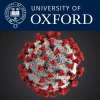Professor Daniel Ebner and Dr Stephanie Hatch
Topics discussed include (00:00:31) [SH] early interest in biomedical science, PhD in the U.S.A. on DNA repair, work in London on cell biology and cancer research; [DE] early interest in medicine, pharmaceutical work and biotechnology, use of robotics for automation and screening work at the University of Oxford at the Target Discovery Institute; (00:03:00) [DE] cross-over between academia and industry; (00:04:06) [DE] early beginnings of the Target Discovery Institute and its work, particularly drug target discovery using screening processes and identification of a novel starting point for drug development; (00:08:58) [SH] work in radiation, oncology and biology, transfer to the Target Discovery Institute Laboratory, work with automation and processes involved; (00:13:28) [SH] first memory of COVID-19; (00:15:40) [DE] decision to utilise resources of the Target Discovery Institute for COVID-19 research including meeting with Peter Radcliffe, correspondence with David Stuart relating to antibody testing, ELISA assay, protocol from Gavin Screaton's laboratory; (00:20:10) [SH] return to work after illness and laboratory work to develop the assay, scale-up of the protocol on the robot; (00:21:49) [DE] immunoassay development and collaborative work with various colleagues, testing of clinical and research staff at the John Radcliffe Hospital for COVID-19 antibodies; (00:25:20) intensive working hours in the laboratory, early morning meetings to share results, work with Alison Howarth in processing samples; (00:29:03) [SH] work with technology whilst under time pressure; (00:31:40) [DE] pace of work whilst working on refinement and experimentation process; (00:33:40) [DEl] Office for National Statistics tracking and partnership with Thermo Fisher Scientific to install two new robots; (00:35:00) expansion of the team, including work with Alison Howarth (Project Manager for COVID Serology); (00:35:34) [SH] running of the experiment over the course of a year, including evolution and adaptation; (00:37:59) [SH] transition back to former work; (00:40:25) [DE] building COVID-19 policy, restart of research projects and restrictions on working within the laboratory; (00:43:05) [DE] pride in the serological platform, including large-scale multidisciplinary collaboration across a diverse range of people; (00:45:56) impact of collaboration on the ability to develop the test, impact on personal life and career path; (00:50:05) personal threat from COVID-19, adherence to restrictions, vaccine trial participation in Oxford; (00:54:43) [DE] changes to approach to future work and interests; (00:58:02) [SH] hierarchy and decision-making process, ability to voice concerns and opinions; (01:00:50) well-being and ability to work on COVID-19 research during the lockdown period; (01:03:00) reaction of others over COVID-19 research during the lockdown period, impact of working through the pandemic on personal well-being and after effects; (00:09:20) transition into working on different projects and positive effect on well-being.




